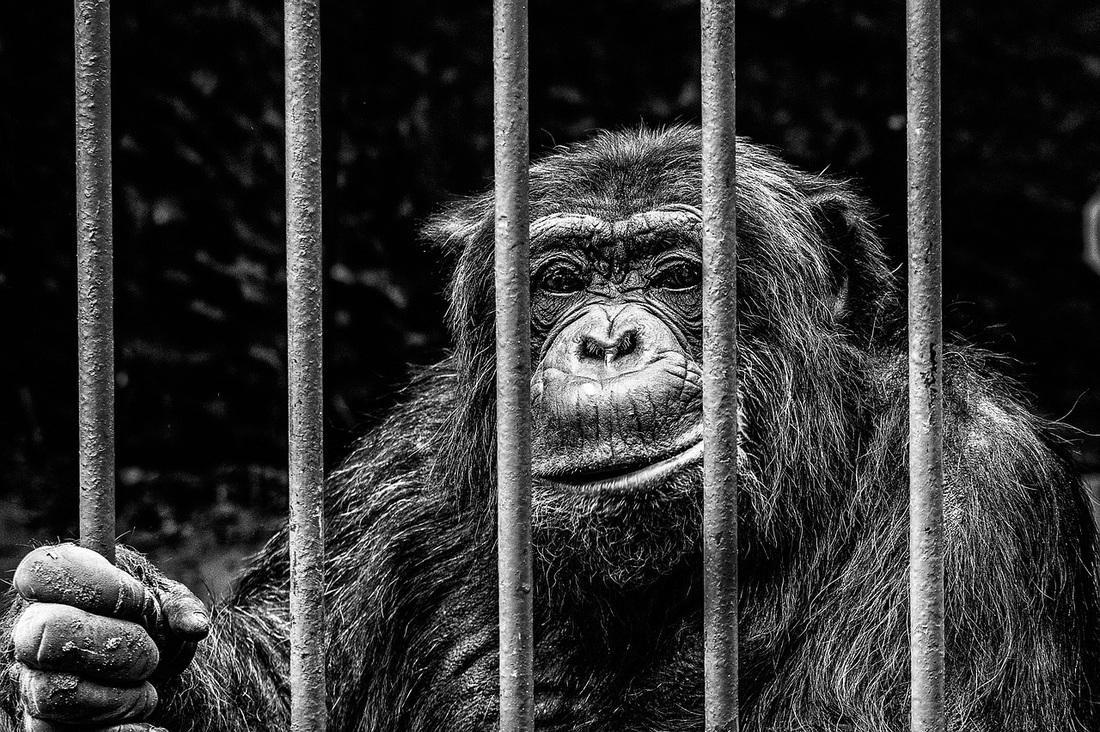---------------------------------------------------
"Today, I have initiated proceedings against my so-called owner, Mr. Polly, under article 4(1) of the European Convention on Human Rights, which declares that 'No one shall be held in slavery or servitude.'
"Since Mr. Polly captured me in Venezuela, I have been held against my will, with no money or possessions to call my own. How can this be right? I am a person just like you. I feel pain. I have plans. I have dreams. I can talk, reason, and feel. You would not treat your own this way. So why do you allow me to be abused so blatantly?
"The answer I hear is, 'Because you're a parrot, Percy.' Yes, I am indeed a parrot. But although your convention is on human rights, throughout it talks of 'everyone' and by everyone it means 'all people.' What is a person? It used to be thought that only white people were truly persons. That prejudice at least has been defeated. Surely a person is any thinking intelligent being that has reason and reflection and can consider itself as itself. I am such a being, I am a person. To deny me my freedom purely on the grounds of my species is a prejudice no more justifiable than racism."
Source: Book two, chapter XXVII of An Essay Concerning Human Understanding by John Locke, 1706.
Baggini, J., The Pig That Wants to Be Eaten, 2005, p. 214.
---------------------------------------------------
Back in my response to thought experiment 32: Free Simone, I discussed the concepts of rights, human rights, and animal rights as a lead up to the discussion about potentially granting rights to conscious computers. Now that we're just discussing animal rights, what I said in that post is perfectly applicable. For starters, I think like Jeremy Bentham that the independent existence of rights is "nonsense on stilts," but we as members of a society can agree to grant them to one another, as in the widely accepted European Convention on Human Rights. We can also agree to grant rights to non-human animals and plants even though these forms of life cannot now recognize or reciprocate such agreements. The abstract concept of rights requires higher-level symbolic thinking that non-humans have yet to develop, but rights have mostly been put in place to protect the much more basic-level fundamentals of being alive: freedom to live, find shelter, and avoid unnecessary harm. Evolutionary history shows that all life shares these fundamental desires—we didn't suddenly gain them with the first theoretical homo sapiens sapiens—so to exclude the rest of life from having such rights just because they don't yet have the capacity to understand or express them to us is undeniably speciesist.
In my cover article for Humanist magazine, When the Human in Humanism Isn't Enough, I thoroughly explained the history and dangers of our speciesism. Such acts are arrogant, ignorant, divisive, and short-sighted. For alternatives, I've argued in a Patheos blog essay for a sacred respect for the sublimity of nature (even by atheists), and in another Humanist magazine article I explained why I feel the call of the rewild to give back non-human animals the habitats they need to survive. These are three of my best publications and they all have to do with kindness and respect towards other forms of life. I'm proud of that.
If you've already read my own work on this subject, then let me suggest two great pieces written by others. The first is the recent acceptance speech by Jared Diamond after receiving the "Humanist of the Year" award in 2016. The speech was titled, Science & Religion in the Rough: Why human evolution and the multitude of extrasolar planets complicate the idea that we are special. The short answer to that subtitle is that we aren't special. But finally, to drive that point home in a way that is particularly relevant to the non-human animal in this week's thought experiment, check out the article "What Does a Parrot Know About PTSD?" in order to see how "an unexpected bond between damaged birds and traumatized veterans could reveal surprising insights into animal intelligence."
If you've already read all these links, then there's nothing else I need to add about treating animals with dignity. If you haven't yet, then get reading! In this fractious time of history for our nations, the billion-year-bonds we share with other forms of life are precisely what we need more of to help us recognise that the selfishness of human tribes is inane. If we love and respect the Percy's of the world, then we can't help but love and respect each other more too. Don't you want that Polly?


